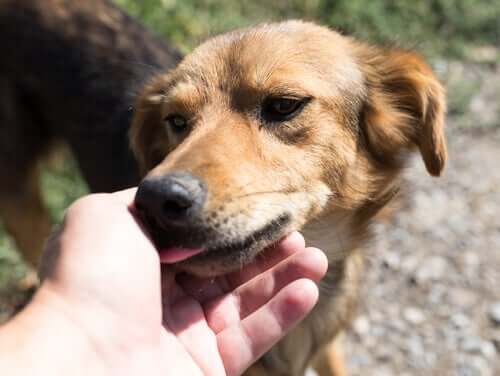What to Do about Dog Bites


Written and verified by the lawyer Francisco María García
Dog bite statistics indicate two important and relevant data. The first is that almost two-thirds of dog bites occur with house pets. The second is that most of the victims are children.
Dogs are friendly and supportive animals. However, they attack at times, for one reason or another. This doesn’t mean that their temperament has changed though. In some circumstances, their instinct to bite prevails over their affection for their owners.
Dog bites are more dangerous if they’re from dogs you don’t know. In such cases, it’s difficult to determine the animal’s state of health, and you should be extremely careful.
How to prevent dog bites
You should take some basic measures into account before it’s too late. These are some of them:

- It’s important to know the characteristics of the dog breed you chose as a pet. Every breed and every dog has specific temperaments. Some are more prone to attack.
- It’s very useful to teach children the basics of respect for animals.
- It isn’t advisable to leave a child alone with a dog, especially if you don’t know the animal.
- You should be very careful when approaching a dog that’s eating or a female dog who’s with her puppies.
- You should approach an unfamiliar dog carefully, never suddenly.
- It’s important to become familiar with canine body language. If you don’t know this language, it’s best for you to stay away from unfamiliar dogs.
Experts recommend dog owners to have a fixed place for their dog to eat. That place should be quite far removed. If there are people walking near your dog while it eats, this can make it nervous or aggressive.
If someone is attacked by a dog they don’t know, it’s best to stay calm. Then, try to walk away slowly. You should avoid staring at the dog, as they’ll interpret it as a threat.
Minor dog bites
Usually, dog bites are minor. In such cases, it’s possible to handle the situation at home. The first thing you should do is examine the wound to verify that it isn’t deep.
If the bleeding isn’t severe, you should allow the wound to bleed for a while. This will help remove some of the bacteria that may be on the skin. It’s certainly appropriate to apply pressure on the wound to help the bleeding stop.
Then, you should wash the wound with hot water for five minutes and then with cold water for another five minutes. It’s advisable to use antibacterial soap. After that, dry the wound with gauze or a paper towel. Don’t use regular towels, as they may contain bacteria or other impurities.
The following step is to apply an antibiotic ointment and cover the wound with a sterile dressing. The bandage must completely cover the affected area. Although it shouldn’t be too loose, neither should you exert uncomfortable pressure on the wound.
You should wash the wound again with antibacterial soap. After this, you need to change the dressing. It isn’t advisable to use hydrogen peroxide because it usually dries the skin.
More serious injuries and complications
If you see that the wound is deep, it’s advisable to go and see a doctor immediately. This is especially urgent if the bleeding is severe.

It’s very important to check if the dog is vaccinated against rabies. If you don’t know the dog, track it for ten days. If it’s still alive after that time, this lessens the chance that it has rabies.
In cases where it’s impossible to verify the dog’s state of health, don’t hesitate to go to the emergency room immediately. Rabies is a serious disease that can lead to death if not treated promptly.
In all cases, if the wound shows signs of swelling and redness, you should consult a doctor as soon as possible. The same goes if bleeding doesn’t stop within 10 to 15 minutes.
Chances are that your doctor may prescribe antibiotics to avoid any complications. It’s important to follow your doctor’s instructions to the letter regarding dosage.
Main image courtesy of Viv Lynch.
https://misanimales.com/ante-las-mordeduras-perro/
This text is provided for informational purposes only and does not replace consultation with a professional. If in doubt, consult your specialist.